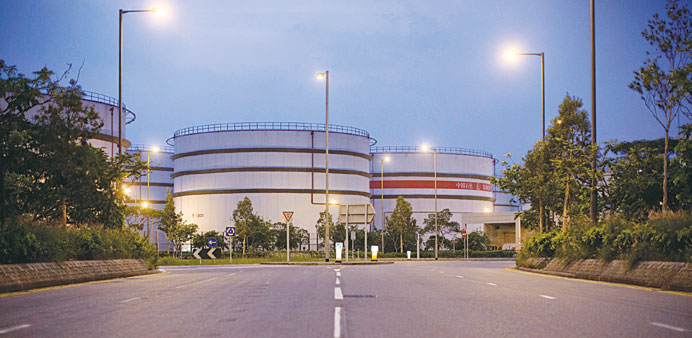Reuters
China Petroleum and Chemical Corp (Sinopec Corp) reported a 35% drop in fourth quarter net profits, bigger than expected, as improved profitability at its refining division was offset by a dip in upstream earnings.
The state-run oil group, which last month unveiled a plan to sell up to 30% of its marketing and distribution business, also said it would cut capital expenditure to 161.6bn yuan ($25.96bn) this year from 168.6bn yuan in 2013 – which was already seven% lower than budget.
The company, in a filing with the Hong Kong stock exchange yesterday, attributed the lower capex last year to its efforts to put more emphasis on investment quality and efficiency. Sinopec said it aimed to do more this year to focus on profitability.
This strategy mirrors the current trend in the global oil industry and echoes plans by rival Chinese energy firm PetroChina, which said on Thursday it would cut capital spending for the second consecutive year in 2014 in an effort to boost shareholder returns in the midst of a corruption probe.
Global oil companies such as Exxon Mobil, Total , BP and Royal Dutch Shell have also said they would cap spending in response to pressure from shareholders, who want more generous payouts. Sinopec, Asia’s largest refiner, booked a net profit of 13.8bn yuan for the quarter, versus 21.1bn yuan in the fourth quarter of 2012, according to Reuters calculations. This compared with a consensus forecast of 20.5bn yuan from four analysts polled by Thomson Reuters.
For the full year, the company earned 66.1bn yuan, up from 63.9bn yuan in 2012. The 2013 results lagged the average estimate of 69.2bn yuan in a Thomson Reuters poll of 31 analysts.
Sinopec’s refining division reported an operating profit of 8.6bn yuan last year against a loss of 11.4bn yuan in 2012.
China brought in a more flexible fuel pricing mechanism in March, the first major revamp in four years, to help avoid fuel shortages and curb consumption. But Chinese refiners are still unable to fully pass on higher crude costs to consumers because the government controls oil prices to help to curb inflation. The refining improvement was offset by a 22% year-on-year drop in operating profit from its exploration and production arm partly due to lower international oil prices.
Operating profits from its chemicals division fell 26% to 868mn yuan due to increase in domestic production capacity and lower chemical prices, it said.
The marketing and distribution business, which operates the world’s largest network of fuel stations, reported an operating profit of 35.1bn yuan in 2013, down 18% year on year.
Sinopec is selling up to 30% of this business, which includes convenience stores, petrol stations, as well as oil-products pipelines and storage facilities.
Analysts have said the sale could raise $10-$20bn and boost the value of the low-margin marketing business, bolster the group’s finances and reinforce investment in exploration and production.

